Display videos
Yes, I'd like to see videos dispalyed.
On 7 April 1979, the league leaders were the visitors at the Georg-Melches-Stadion on Hafenstraße in Essen. Both teams thrilled the 8,500 spectators with attacking play and plenty of goals. After going ahead in the first minute through centre-forward Peter Szech, Peter Hermann doubled the Werkself’s lead on 17 minutes. But Essen hit back and levelled the score at 2-2 on the half-hour, which was how the teams went into the break. When Matthias Brücken put Bayer 04 ahead again, it looked like they’d go on to win. However, the Red & Whites equalised with a superb free-kick from 20 metres, and so the game ended in a draw, which was a fair result.
Five days later, on Maundy Thursday, 12 April 1979, the rescheduled game from Matchday 22 took place at Arminia Hannover. Coach Willibert Kremer was able to put out his best team in the Lower Saxony capital. In a hard-fought match, Arminia took the lead through a penalty in the 48th minute. The ensuing barrage from the league leaders was only rewarded very late on, in the 86th minute, when Matthias Brücken once again scored to make it 1-1. Bayer 04 then prepared for the upcoming home game against Rot-Weiß Lüdenscheid on Easter Monday.
That memorable home game took place on 16 April 1979. Walter Posner and Norbert Ziegler got injured so badly in the first ten minutes that they both had to be substituted. But Bayer 04 also took the lead through Klaus Bruckmann during those ten minutes in front of 4,000 spectators. By the break, the Werkself had increased their lead to 4-0 through a Klaus Bruckmann penalty and goals from Matthias Brücken and Peter Hermann. Bottom team Rot-Weiß Lüdenscheid were completely overwhelmed at the Ulrich Haberland Stadium and the Bayer 04 fans were thrilled by their team's constant attacking drive, which didn't let up in the second half. The final score was 8-1 thanks to further goals from Matthias Brücken, Thomas Hörster and Peter Szech (2). Apart from an 8-0 win against STV Horst-Emscher in October 1961, this is still the biggest home win to date. The Werkself were sitting confidently at the top of the table, but no-one was talking about promotion.
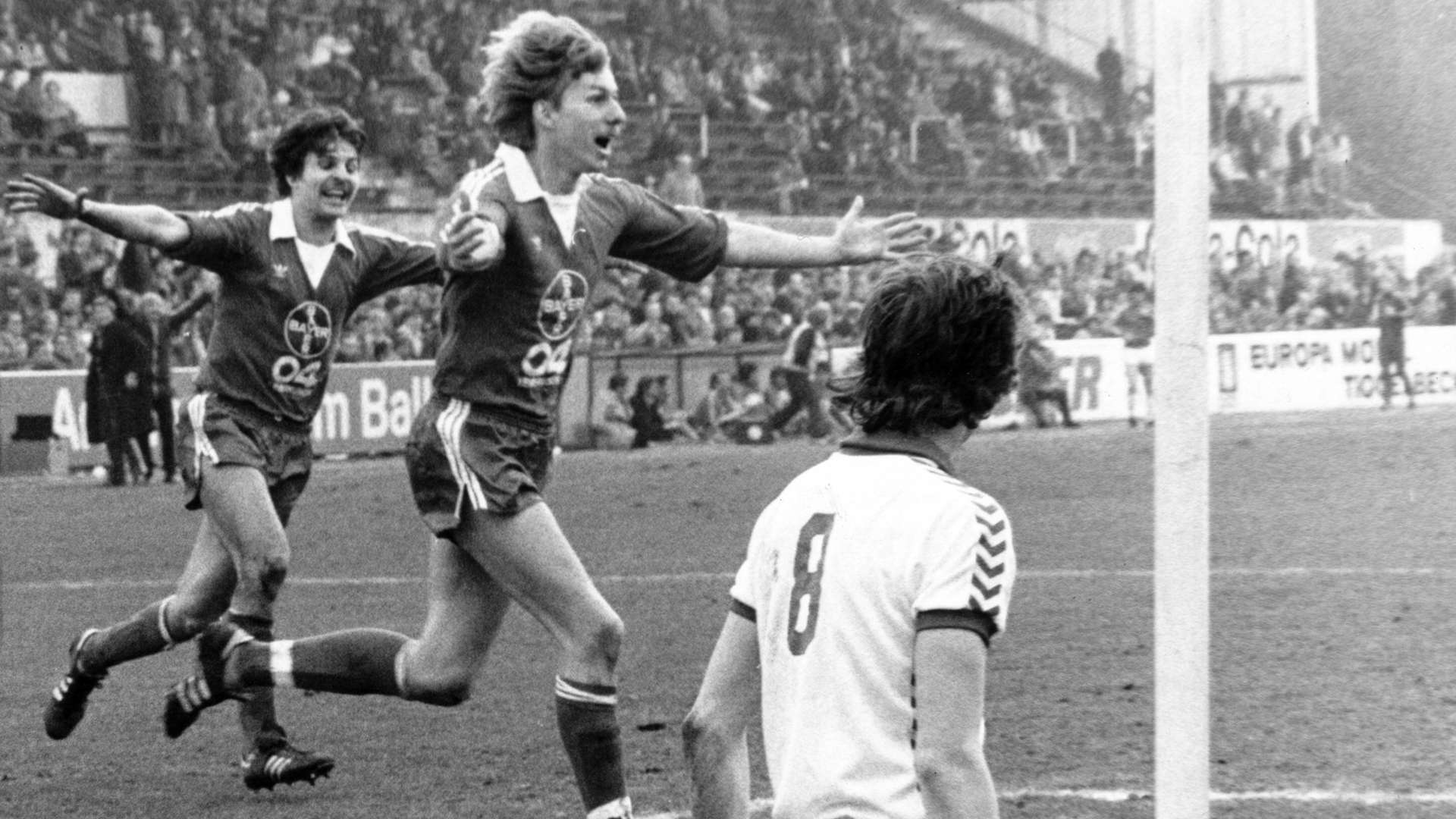

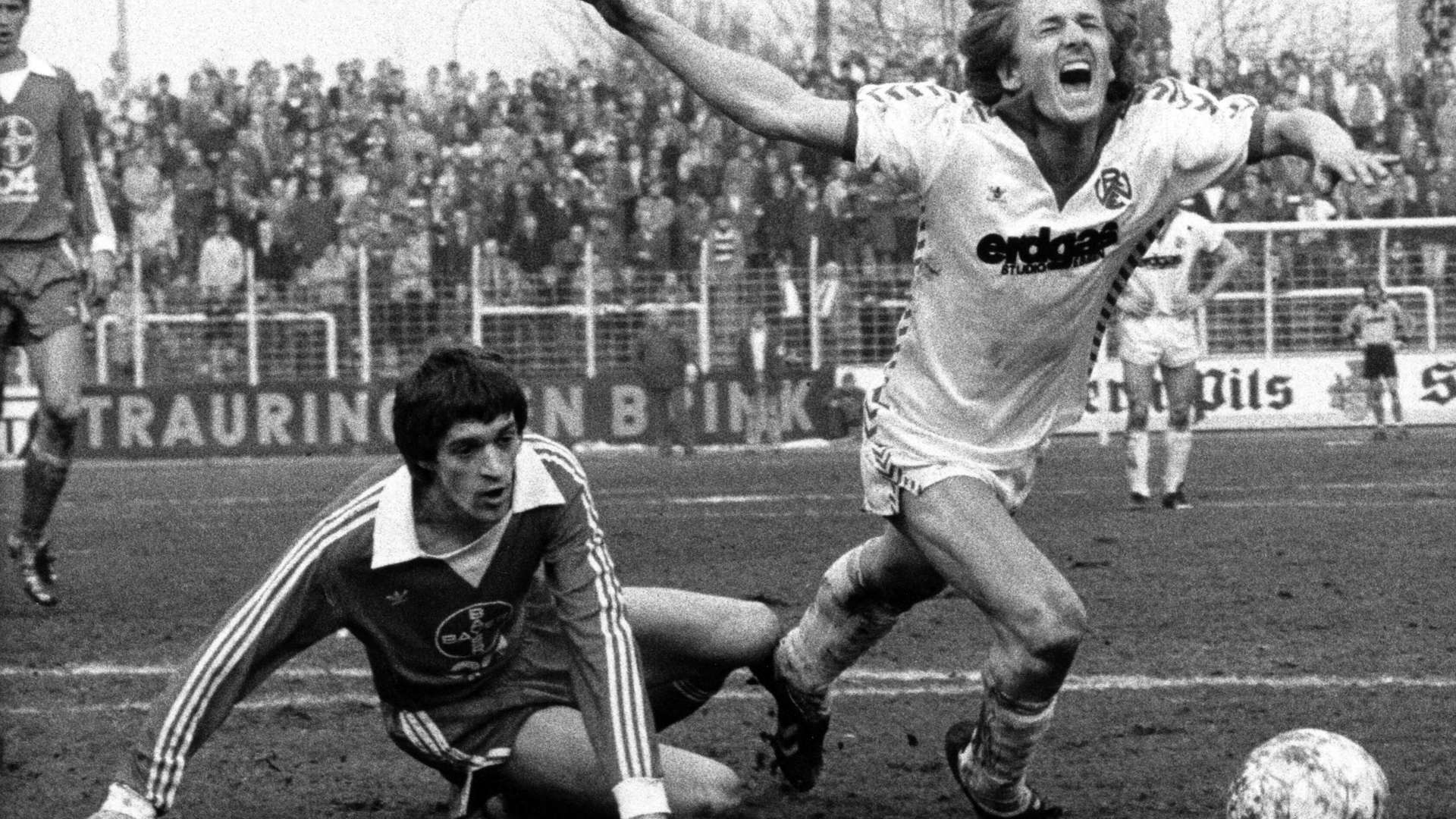
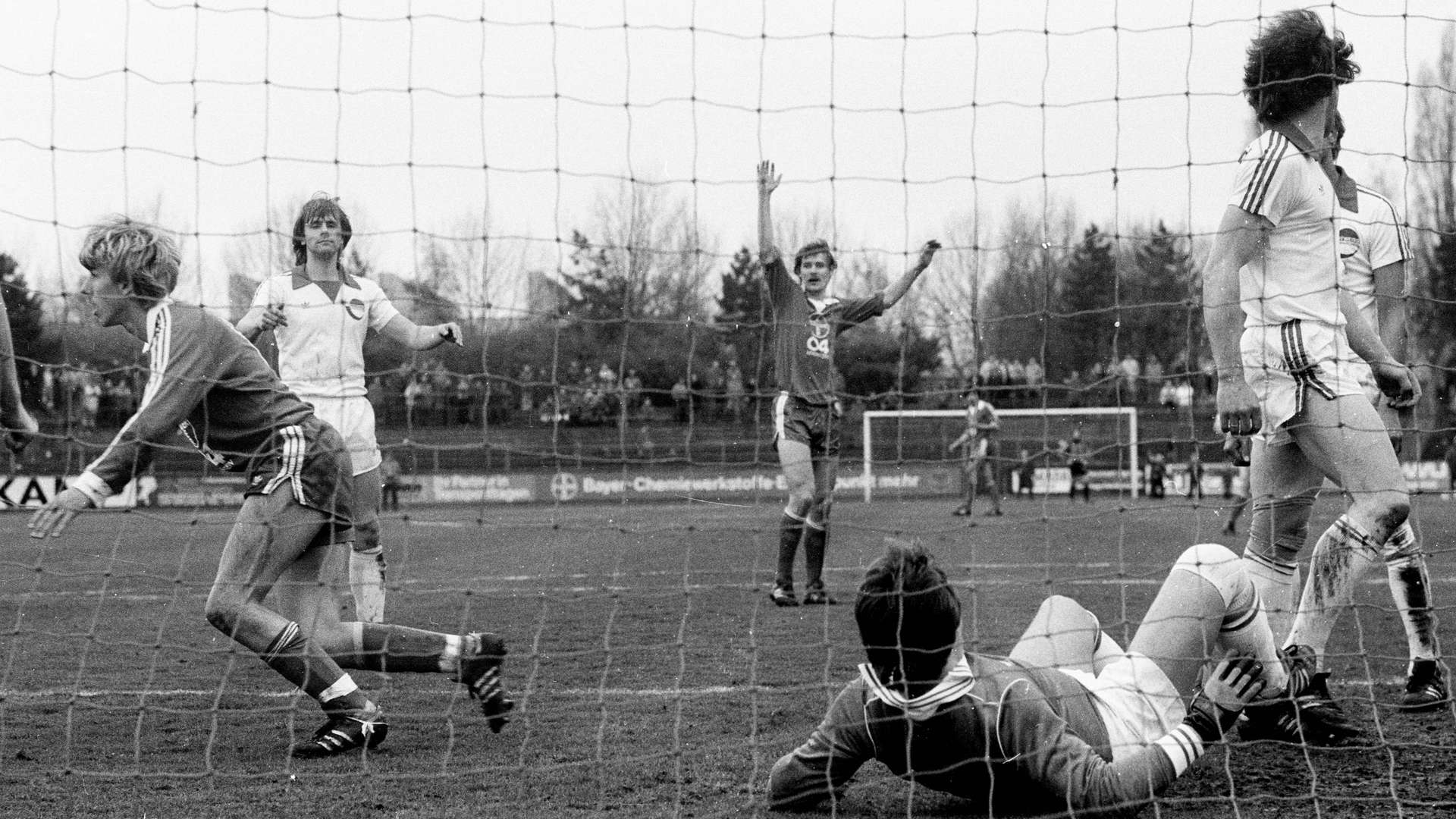
The next away game was another trip to the capital of Lower Saxony, this time to the Niedersachsenstadion to face Hannover 96. 5,000 spectators packed into the stadium to watch their team deliver a brilliant performance. Bayer 04 were convincing in terms of play, but in the end, the home team won 2-1, and not undeservedly so. With seven games remaining and the two-point rule for a win at that time, the lead over the nearest teams, Preußen Münster and Bayer 05 Uerdingen, was reassuring at eight and ten points, even if the other Werkself from Krefeld still had two games in hand and could reduce the lead to six points with two wins.
A special highlight lay in store for the Werkself on 28 April. For the first time in Bayer 04's history, they could reach the DFB Pokal quarter-finals. The Rhineland-Palatinate amateur Oberliga team TuS Neuendorf, now TuS Koblenz, had fought their way into the last 16 with wins against the Werder Bremen reserves, FC St. Pauli and FC Bocholt. Our Werkself travelled to the Oberwerth stadium as clear favourites, a role they would live up to. A brace from midfielder Thomas Hörster plus another goal from captain Dieter Herzog put Bayer 04 in the lead before the break. Although Koblenz were able to pull one back in the 60th minute, Matthias Brücken restored the gap ten minutes later. The team's first-ever appearance in the DFB Pokal quarter-finals was another football highlight under the cross, in addition to their undisputed lead in the Bundesliga 2 Nord.
Related News
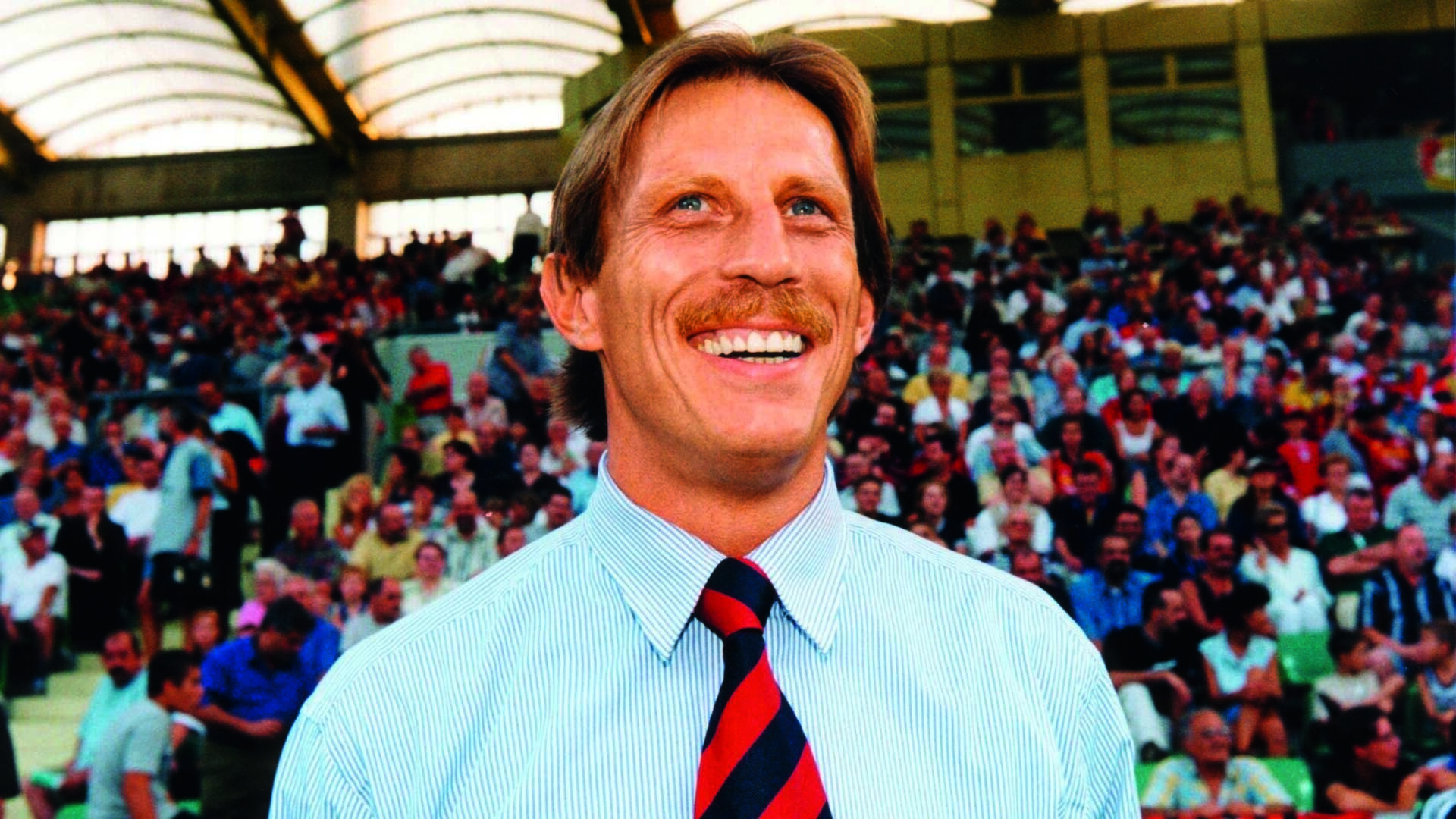
Legend: Christoph Daum - The man who taught us to want
Christoph Daum was born on 24 October 1953 in Zwickau. As a child, he moved to West Germany with his mother and grew up in Duisburg. He developed a great enthusiasm for football at an early age, even though it soon became clear that his future lay less on the pitch than on the sidelines. Even at a young age, his passion for analysing, explaining and improving things became apparent.
Show more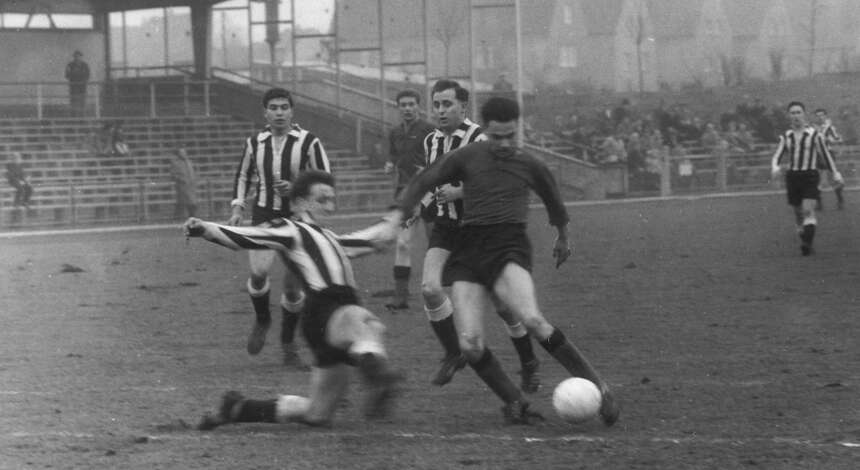
From the archives: 65 years ago - Another victory at last
When the Bayer 04 players celebrated Christmas in 1960, they spent the winter in second place in the Oberliga West 2 on 20 points - but already five points behind leaders Schwarz-Weiß Essen. However, coach Erich Garske's team are struggling to get back on track in the new year. A goalless draw against Bonner FV at home at the Ulrich Haberland Stadium was followed by a 2-1 away defeat in Erkenschwick. The following home game also yielded just one point. As a result, the team's promotion ambitions dwindled to a minimum, as the gap to the coveted spot has now grown to a challenging ten points.
Show more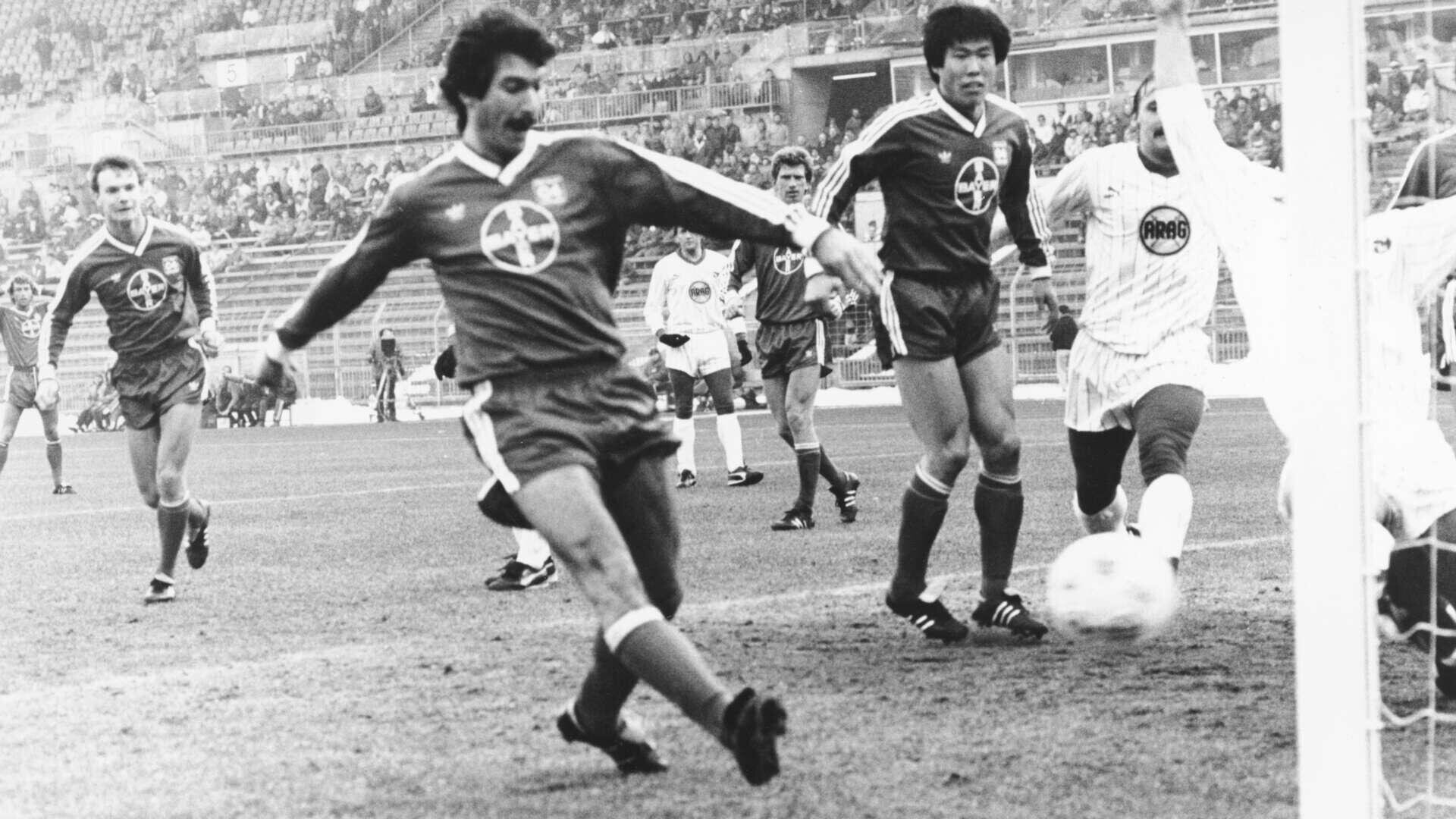
Goals of the month: From Waas to Tapsoba
In this video you can see impressive and important goals in Bayer 04 history from the month of February. It's not always about the beauty of the goals, but also a reminder of special games and players.
Show more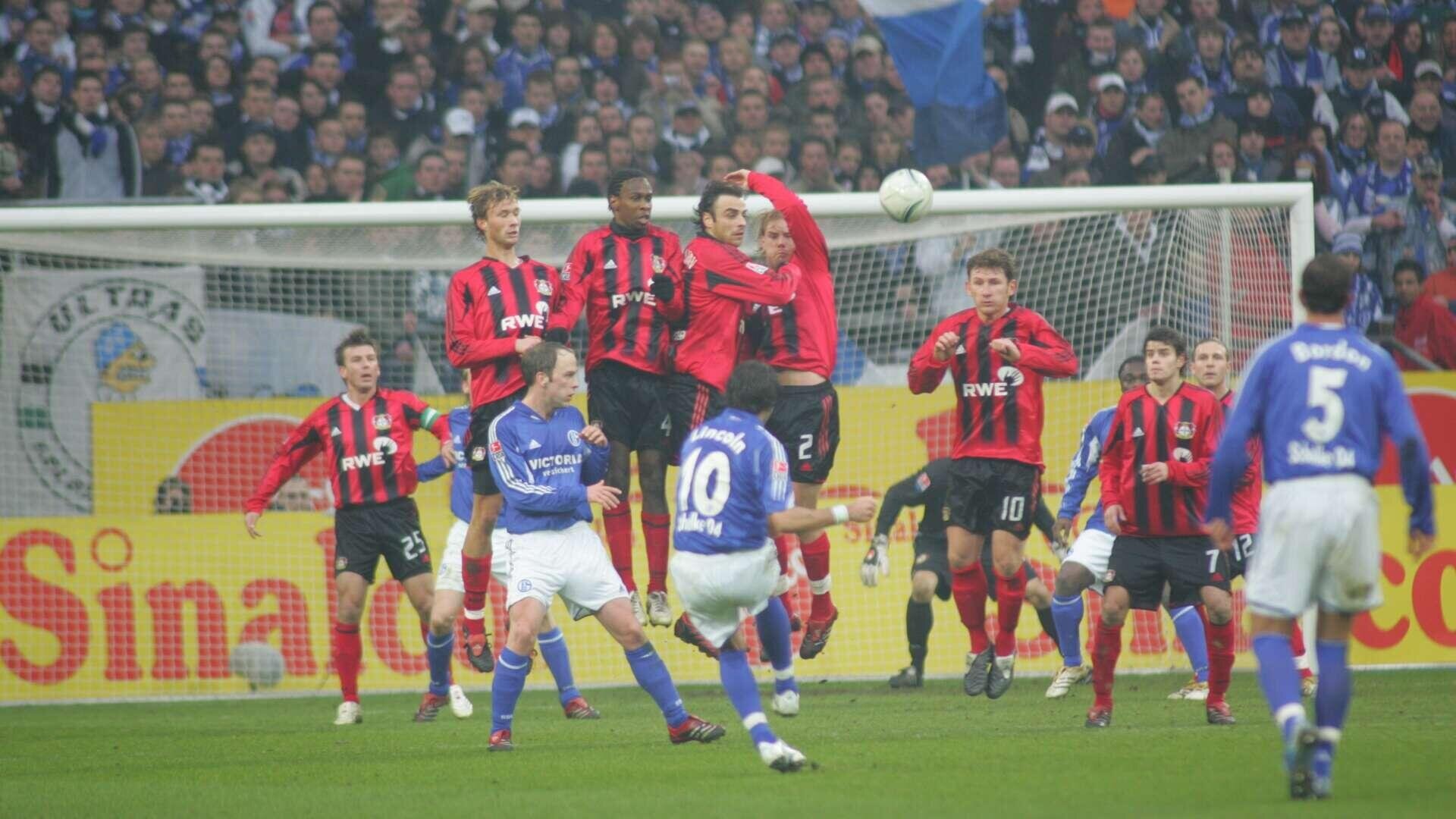
Match of the month: 20 years ago - A game of goals galore
It is 11 February 2006 and Schalke 04 and the Werkself kick off at 3.30 p.m. in a match that ends up being historic - at least from a Bayer 04 perspective.
Show more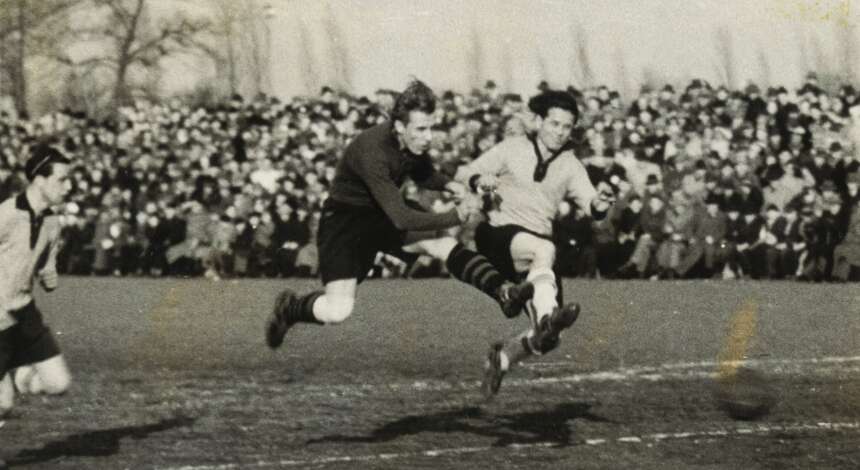
History: 75 years ago - The 1950/51 season (February)
As league leaders, the Werkself welcomed the relegation-threatened team from Rhenania Würselen. On 4 February 1951, 5,000 spectators line the touchlines despite the Sunday carnival parades. And they see a home team that is superior on the pitch. Without Theo Kirchberg, who was ill, and Emil Becks, who was suspended, the hosts attacked the opposing goal from the start. Battling against a strong wind in the first half, Bayer 04 created chance after chance, but were repeatedly thwarted by the Würselen goalkeeper. With the score at 0-0 at half-time, Karl Heinz Spikofski tried his luck on 55 minutes and hammered the ball into the opposition net from 20 metres out. Rhenania can no longer counterattack. The siege of the Würselen penalty area continued right to the end, but the game ended in a narrow 1-0 win.
Show more